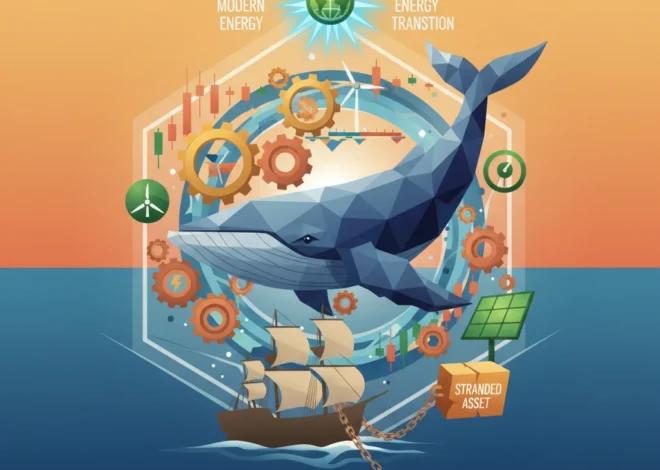The Unexpected Globalist: Why a Conservative Worldview Can Foster Deeper International Ties
Challenging the Narrative: Who Truly Owns Internationalism?
In the modern discourse of global affairs, a familiar narrative has taken hold: the political left champions international cooperation, open borders, and a shared global identity, while the right is often portrayed as insular, nationalist, and skeptical of the world beyond its shores. We picture the left-leaning activist championing global climate accords and the conservative politician advocating for “America First.” But what if this framework is not just an oversimplification, but fundamentally flawed?
A compelling, contrarian argument suggests that the right, particularly its more cosmopolitan wing, often fosters a more tangible and durable form of internationalism than the left. This isn’t the internationalism of supranational bodies and abstract treaties, but one built on the bedrock of commerce, personal relationships, and lived experience. As Janan Ganesh argues in the Financial Times, there is a profound difference between ideological globalism and practical internationalism. For investors, business leaders, and anyone navigating the complexities of the global economy, understanding this distinction is not merely an academic exercise—it’s crucial for anticipating political trends and identifying opportunities.
Two Models of Global Engagement: Abstract Ideals vs. Tangible Connections
The prevailing view of left-wing internationalism often centers on universalist ideals and institutional frameworks. Think of the United Nations, the European Union, the World Health Organization, and global agreements on human rights or climate change. The goal is to create a “placeless” set of rules and values that transcend national identity. While noble in its aspirations, this approach can feel detached from the day-to-day realities of human interaction. It’s an internationalism of conferences, communiqués, and committees—a top-down vision for a globally integrated world.
Conversely, the conservative model of internationalism tends to be a bottom-up phenomenon. It is not born from a desire to supersede the nation-state, but to build connections between them. This “lived internationalism” is found in the entrepreneur sourcing materials from Vietnam, the banker structuring a cross-border deal in Singapore, or the family taking a holiday in Italy. It’s forged not in the halls of diplomacy, but in the bustle of the stock market, the wiring of global banking systems, and the logistics of international trade. It is pragmatic, transactional, and deeply personal. It views the nation as the fundamental unit of identity, but sees no contradiction in building robust and profitable relationships across borders.
This distinction becomes clearer when we compare the core tenets of each approach.
| Aspect | The “Institutional” Model (Often Left-Leaning) | The “Pragmatic” Model (Often Right-Leaning) |
|---|---|---|
| Foundation | Universalist ideals (e.g., human rights, climate justice) | Mutual interest, commerce, and personal experience |
| Key Channels | Supranational organizations (UN, EU), NGOs, treaties | Business, finance, trade, tourism, expatriate communities |
| View of Nation-State | An entity to be transcended or constrained by global rules | The essential building block for international relations |
| Key Actors | Diplomats, academics, activists, institutional bureaucrats | Entrepreneurs, investors, traders, expatriates, travelers |
| Driving Force | Ideological commitment to global governance | Pursuit of opportunity, profit, and cultural curiosity |
The Grandmaster's Gambit: What Chess Teaches Us About Modern Investing
Finance as the Ultimate Form of “Lived Internationalism”
Nowhere is this pragmatic, conservative-led internationalism more evident than in the world of global finance. The modern financial system is arguably the most globalized force in human history, a complex web of capital flows, trading relationships, and interconnected markets that operates 24/7. This system wasn’t primarily designed by idealists in a global forum; it was built by financiers, bankers, and investors in pursuit of returns.
Consider the act of building a diversified investment portfolio. An investor in Chicago might hold shares in a German automaker, lend money to the Brazilian government through a bond fund, own a stake in an Indian fintech startup, and use a derivative to hedge currency risk against the Japanese yen. This is not an abstract expression of global solidarity; it’s a calculated financial strategy. Yet, it creates a powerful and tangible connection to the economic fortunes of people and companies around the world. The performance of the global stock market directly impacts this investor’s wealth, creating a vested interest in international stability and prosperity—a connection far more immediate than a signature on a climate petition.
The evolution of financial technology has only accelerated this trend. Fintech platforms allow retail investors to access foreign markets with unprecedented ease. The rise of digital assets and blockchain technology, while still maturing, represents a new frontier of truly borderless finance, often championed by those with a libertarian or free-market worldview. This intricate dance of capital is a form of internationalism that requires no shared language or political ideology, only a shared understanding of risk, return, and contract law (source).
The Temu Effect: How Your Shopping Cart Is Quietly Reshaping Global Economics and Politics
Implications for Global Business and Investment Strategy
So, why does this philosophical distinction matter for today’s business leaders and finance professionals? Recognizing the drivers of “pragmatic internationalism” provides a more nuanced lens for assessing geopolitical risk and opportunity.
- Predicting Trade and Economic Policy: A government’s rhetoric might be nationalist, but its actions may be driven by a deep-seated belief in free enterprise. By analyzing the economic philosophy of its leaders, one can better predict whether policies will ultimately favor or restrict foreign investment and international trade. The focus is less on grand statements at global summits and more on tax codes, regulatory environments, and the sanctity of contracts.
- Understanding Political Alliances: Alliances built on shared economic interests and robust trade relationships can often prove more resilient than those based on shifting ideological alignments. As the original article implies, the person with a business partner in another country has a more concrete stake in that relationship than someone who simply shares a political viewpoint.
- Navigating Deglobalization Narratives: While talk of deglobalization dominates headlines, the “lived internationalism” of business and finance continues unabated. Supply chains may be re-shoring or “friend-shoring,” but the fundamental need for international capital, markets, and talent remains. The nature of globalization is changing, but the underlying pragmatic connections driven by conservative-leaning principles of commerce are proving remarkably durable.
The Brexit debate in the UK serves as a fascinating case study. The Remain campaign often focused on abstract economic models and warnings from large institutions. In contrast, many Leave voters, while voting for national sovereignty, were themselves deeply international—expatriates, small business owners trading with the continent, or people with family and holiday homes abroad. Their vote wasn’t necessarily anti-international; it was anti- a specific, institutional, top-down version of it (source). They preferred a world of bilateral agreements and commerce between sovereign nations over one governed by a supranational body.
Beyond the Iceberg: What the Titanic Teaches Us About Modern Investing and Fintech
Conclusion: A More Realistic View of Our Interconnected World
To be an internationalist does not require subscribing to a specific political ideology or believing in the erosion of the nation-state. The cosmopolitan conservative offers a different, and arguably more potent, model for global engagement—one grounded in the tangible realities of economics, trade, and personal connection.
This perspective reminds us that the forces knitting our world together are often more practical than political. The flow of capital, the pursuit of opportunity, and the simple desire to do business or experience another culture are powerful drivers of internationalism. For those of us in the worlds of finance, investing, and business, recognizing this truth is essential. It allows us to look beyond the political theater and understand the deeper, more resilient currents that truly shape our globalized world.


